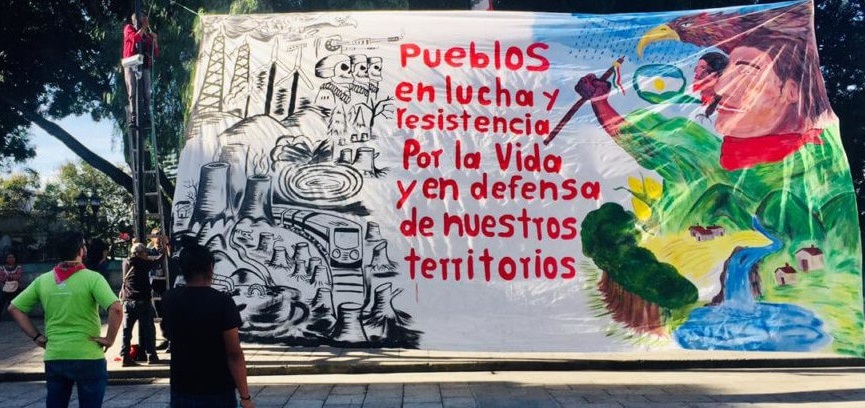RIO DE JANEIRO, BRAZIL – In southern Mexico, there is a growing number of voices calling for the federal government to progress in recognizing indigenous rights.
In October, several alliances expressed themselves on this issue, including the Alliance for Self-Determination and Autonomy (ALDEA), a coalition of 50 social and civil society organizations and indigenous communities from several states.
The ALDEA calls on the legislature and the government to move from electoral promises to action two years after taking office and to implement a constitutional reform so that indigenous communities are finally recognized as legal entities and historical discrimination and racism in the country can be fought.
In a forum involving international bodies such as the Inter-American Commission on Human Rights and the UN Rapporteur on the Rights of Indigenous Peoples Francisco Cali, Jorge Oziel Pech of the collective “Maya de los Chénes” stressed that agribusiness, solar and wind farms, and now the Mayan train project “systematically violate their right to autonomy and self-determination”.
“We are no longer prepared to be treated as outsiders in our own lands and territories,” indigenous organizations in Oaxaca made clear at another forum. Consequently, they are calling for the drafting of a local legal initiative to establish the territorial rights of indigenous communities and peoples in the state of Oaxaca.
In the case of Oaxaca, where half of the population defines itself as indigenous, a decision by the Supreme Court calls on the local parliament to establish indigenous rights, including the right of consultation.
The group of well over 50 organizations and communities also criticize that “given the ambitions of capital,” laws have been passed in the past that simplified the expropriation of indigenous lands, which is reflected in the mining, hydroelectric, wind power, and highway concessions. The indigenous crops, particularly corn, are also threatened by agribusiness and the use of genetic engineering.
The fact that the indigenous policy of President Andrés Manuel López Obrador‘s government is not on the right track is also illustrated by the occupation of the National Institute for Indigenous Peoples (INPI) headquarters in Mexico City by Otomie Indians members of the National Indigenous Congress (CNI), which is close to the Zapatistas.
Homeless in Mexico City since the 2017 earthquake, the indigenous people of the city are demanding not only housing for their families but also an end to the attacks on Chiapas communities linked to the EZLN. The occupation is supported by organizations from other parts of the country, which see it as a “wake-up call” to demand the indigenous peoples’ right to self-determination.


